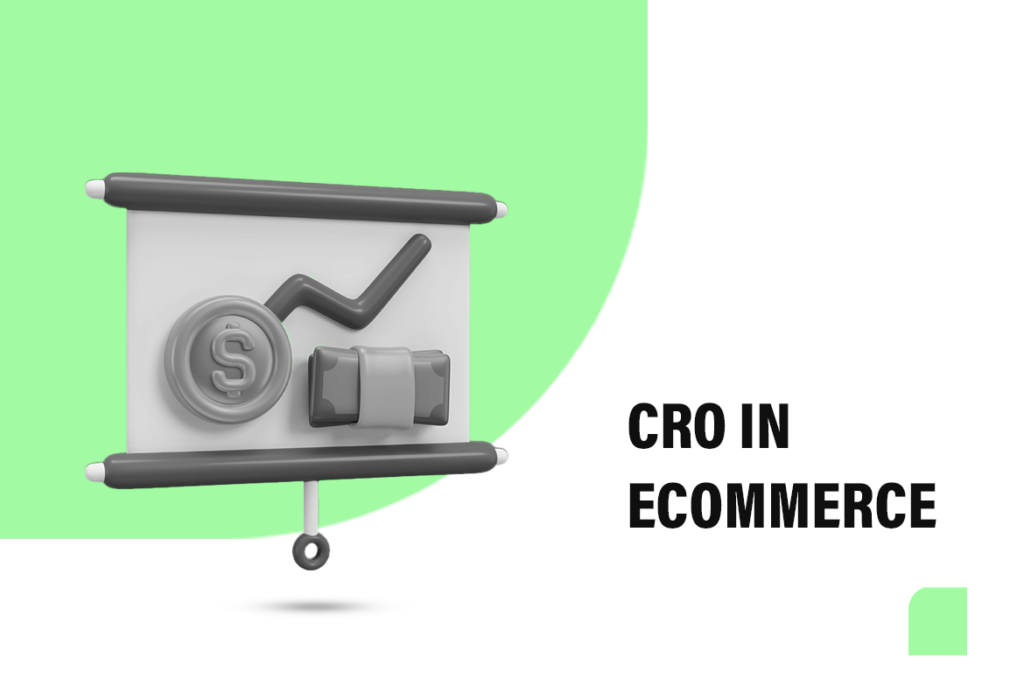What is SEO?
SEO refers to the practice of optimizing your website and online content to rank higher on search engine results pages (SERPs). SEO involves several techniques, strategies, and best practices aimed at making your website more attractive to search engines, and the ultimate goal of SEO is to increase organic (non-paid) traffic to your site.
How Does SEO Work?
Search engines like Google use complex algorithms to crawl (or scan) websites to understand what they’re about and how useful they might be to the users, this process is called indexing so the better a search engine can understand your site, the higher it will rank on SERPs.
SEO works by communicating to these search engines that your website and content are the best results for the keyword being searched. This communication happens through elements like keywords, backlinks, high-quality content, and a good user experience.
ًWhat are the SEO types?
There are two main types of SEO: On-Page and Off-Page.
- On-Page SEO involves optimizing the parts of your website that you have control over, and This includes things like site speed, keyword presence, header text, and more. These elements help search engines understand your site better and rank it higher for its topics.
- Off-Page SEO refers to the actions taken outside of your own website to impact your rankings within SERPs and this includes things like link building, social media marketing, and influencer marketing. These strategies can help improve your website’s relevance, authority, and overall ranking on search engines.
In combination with on page search engine optimization techniques, off-page SEO can greatly enhance your online visibility and organic traffic.
Why is the SEO important for SMEs?
As a small or medium business, it can be daunting to compete with larger companies on search engines. However, implementing effective SEO strategies can give you a competitive edge, and the following are some key points to keep in mind while putting down your website SEO strategy:
- A. Unique Challenges Faced by SMEs
Small and Medium Enterprises (SMEs) often grapple with challenges that can thwart their digital growth for example; lack of resources, tight budgets, and minimal exposure to cutting-edge technology can stifle their ability to compete with larger businesses in the digital landscape. Moreover, SMEs often struggle with gaining visibility and building a robust online presence due to the dominance of larger players in their industry.
- B. The Role of SEO in Overcoming These Challenges
SEO emerges as a powerful tool for SMEs to navigate these challenges because It enables them to reach a global audience cost-effectively, leveling the playing field against larger competitors. By optimizing their websites for search engines, SMEs can enhance visibility, boost organic traffic, and improve the quality of leads. Furthermore, effective search engine optimization strategies can stimulate long-term results, enhancing sustainability, and longevity in the online marketplace.
- C. Why SMEs Should Prioritize SEO Services
Prioritizing SEO services is crucial for SMEs keen on carving a niche and establishing a competitive edge in their industry. SEO not only improves online visibility but also fosters customer trust and credibility, key factors in building a loyal customer base. Moreover, SEO’s ability to deliver high ROI and cost-effectiveness makes it a valuable investment for SMEs operating on tight budgets. In essence, SEO can be a game-changer for SMEs, catalyzing growth, and driving business success in the digital world.

What are The Benefits of SEO for SMEs?
Now that you have a general understanding of how SEO works, let’s explore in detail its benefits for small and medium businesses:
- Increased online visibility: By implementing effective SEO strategies, your website will rank higher on SERPs, making it more visible to potential customers. This increased visibility can lead to more website traffic and ultimately more conversions.
- Cost-effective marketing: Unlike paid advertising methods, such as Google Ads or social media advertising, SEO is a low-cost marketing strategy, which makes it especially beneficial for SMEs with limited budgets.
- Targeted traffic: SEO targets users who are actively searching for products or services related to your business, increasing the likelihood of conversions. This targeted traffic can also lead to higher quality leads and better ROI.
- Long-term results: While it may take some time to see results from SEO efforts, the effects can be long-lasting and with consistently good SEO practices, your website can maintain a high ranking on search engines, leading to sustained organic traffic and potential customers.
- Competitive edge: In today’s competitive digital landscape, having a strong SEO presence can give you an advantage over other businesses in your industry, By appearing higher on SERPs, you are more likely to attract customers who trust and value websites that rank well.
How to Measure SEO Success for SMEs?
For Small and Medium Enterprises (SMEs), measuring the success of SEO efforts plays a crucial role in determining the value and impact of your digital marketing investments.
Key Performance Indicators (KPIs) for SMEs
The journey starts with understanding the right metrics to measure and these Key Performance Indicators (KPIs) may include organic traffic, search engine rankings, click-through rates, and conversion rates. These tangible metrics allow SMEs to measure the effectiveness of their SEO strategies, providing insights to guide future efforts.
Monitoring and Analyzing Website Traffic
Monitoring and analyzing website traffic forms an integral part of measuring search engine optimization success and utilizing tools such as Google Analytics can provide comprehensive insights into your website’s performance, visitor behavior, and engagement metrics. This in-depth analysis can unlock opportunities to optimize your website and enhance user experience.
Adapting Strategies Based on Performance Metrics
Adapting your SEO strategies based on performance metrics ensures your business remains competitive and responsive to changes in search engine algorithms, by assessing your SEO performance regularly, you can identify areas of improvement, reallocate resources effectively, and continuously enhance your digital presence. search engine optimization isn’t a set-and-forget strategy, but a dynamic process that requires regular tuning for optimal success.
What are the key elements of SEO strategy?
Multiple elements make up a successful SEO strategy, and these include on-page and off-page factors, and the following are some key elements to consider in an SEO strategy for SMEs are:
- Keyword Research: This is the base of your SEO strategy. It involves understanding the phrases and terms your potential customers use when searching for your services or products online. Tools like Google Keyword Planner can be instrumental in this process.
- On-Page Optimization: This involves optimizing individual web pages for specific keywords. It includes meta tags, title tags, header tags, URL structure, and keyword density.
- Quality Content Creation: Search engines value fresh, relevant, and quality content, it’s recommended to Regularly update your website with valuable blog articles, guides, and infographics that can boost your SEO.
- Link Building: This refers to the process of acquiring hyperlinks from other websites to your own because the link is a way for users to navigate between pages on the internet, and they help search engines crawl the web.
- Technical SEO: This involves ensuring that your website is easy to crawl, index, and understood by search engines, and it includes website speed, mobile-friendliness, site architecture, and XML sitemaps, among others.
- Local SEO: If your business has a physical location or serves a specific geographic area, optimizing for local search is crucial because it involves claiming directory listings, collecting reviews, and ensuring your location details are consistent on the web.
SEO is no longer optional—it’s essential. By understanding the basics of SEO and implementing optimization strategies, you can increase your online visibility, attract more organic traffic, and ultimately, grow your business. Remember, SEO is a long-term strategy, but the results are worth the wait. Start optimizing today for a brighter online future.
By focusing on these key areas, you can build a robust SEO strategy that drives organic traffic, enhances online visibility, and fosters business growth. Remember, SEO is a long-term investment that requires patience and consistency, but the rewards are well worth the effort. It is your turn to shine in the digital world.
Conclusion
SEO is a critical aspect of your business strategy that can propel you to unprecedented heights and with our specialized knowledge and expertise, we deliver top-tier SEO services to ensure your digital presence is relevant, fresh, and competitive. It’s your turn to shine and capture the attention and revenues your business deserves. Fill out this form and get a free audit for your website and unleash the power of our SEO solutions.
By partnering with CodeStan digital management solutions, your SME can harness the power of SEO to improve online visibility, attract targeted customers, and drive sustainable growth.
FAQ
What tools are recommended for monitoring and measuring SEO performance for SMEs?
When it comes to monitoring and measuring SEO performance for SMEs, a variety of tools come into the picture such as Google Analytics, for instance, offers comprehensive insights into your website’s performance, visitor behavior, and engagement metrics and SEMrush is another powerful tool providing a wealth of SEO-related data, including keyword rankings, backlink analysis, and competitive research.
How long does it typically take to see results from an SEO strategy for SMEs?
Seeing results from an SEO strategy isn’t an overnight affair, Typically, it takes anywhere from 4 to 6 months to notice initial improvements. However, truly robust results often don’t materialize until about 12 months into consistent, quality SEO work.
How can SMEs optimize their websites for voice search?
For SMEs to optimize their websites for voice search, they need to pay attention to long-tail keywords and conversational phrases that people use in everyday speech and tools like Answer the Public can help identify questions and phrases your audience might use when speaking.
What role does content marketing play in the SEO strategy for small businesses?
Content marketing acts as the backbone of an effective SEO strategy for small businesses. By creating valuable, quality content, businesses can attract and engage their audience while improving their SEO ranking. Remember, search engines favor websites that regularly update with fresh, relevant content.
How does mobile optimization impact the SEO efforts of small businesses?
Lastly, mobile optimization plays a significant role in SEO efforts. With an increasing number of users accessing the internet via smartphones, Google has implemented a mobile-first indexing system. This means that the mobile version of your website plays a crucial role in how Google ranks your site. Hence, SMEs should ensure their website design is responsive, and the site is easy to navigate on mobile devices.




